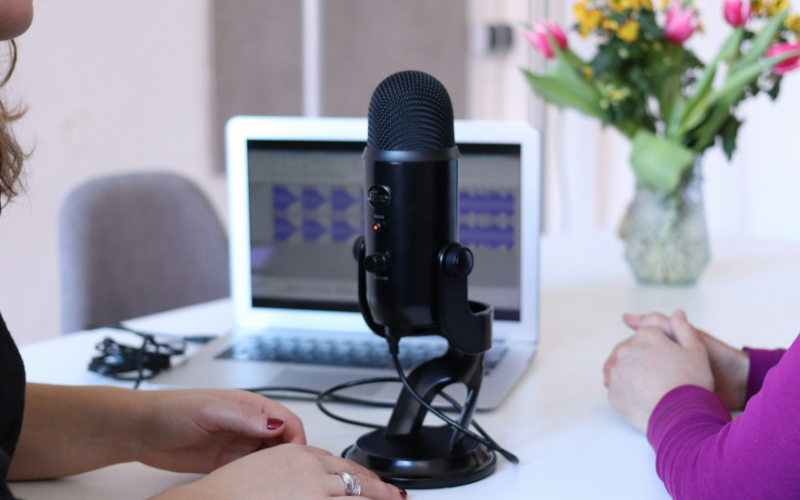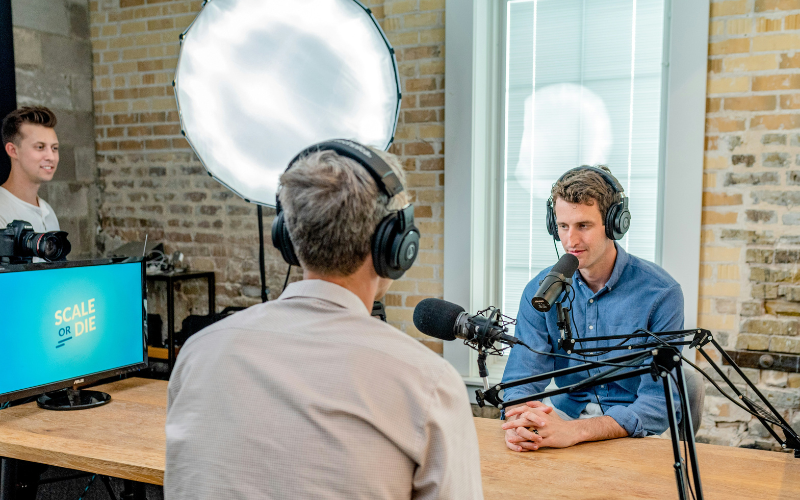Tips for Starting a Podcast to Promote Your Business
For business owners, launching a podcast is an effective way to spread brand awareness, build a network of future partners, and provide information on the services or products they offer. Podcasts have become increasingly popular recently, and their outreach has grown accordingly. Platforms like Apple Podcasts, Amazon, and Spotify have become huge hubs for podcasters. Launching a podcast has become even easier with multiple tools and platforms for prospective podcasters to have at their disposal.
ITH Hostel co-founders Jimmy Black and Bobby Dyer shared their experiences of starting their podcast, Hostel Road Trip Podcast, and what business owners should expect in launching a podcast. The two began recording their Hostel Road Trip Podcast series in 2018 and have since released over twenty episodes. Throughout their time recording, they’ve learned a few key lessons.

For Starters:
The networking aspect of starting a podcast works two-fold. In terms of expanding the subject matter, inviting guests to appear on your podcast can be invaluable. Having a topic that pertains to both your audience and theirs becomes a tool for cross-promoting. For Black and Dyer, this was a focus of their podcast, which revolves around interviewing hostel owners from around the country.
“Talking shop with (other hostel owners) has allowed us to fine-tune our process for what we do,” says Black. “Seeing cool practices and principles (elsewhere) has been an amazing learning experience for us.”

Black and Dyer spent the early duration of their recording days on the road, touring from town to town in a van to speak with hostel owners around the United States. Those trips, while more time-consuming and costly than it would be to set up a virtual session, proved to be incredibly valuable for them. It was not only a way to see and experience the lifestyle of a town where their guests were located, but it offered a networking opportunity. Both as business owners and podcast hosts, they began to see the benefits of building out their web of contacts through the podcast. Before they knew it, that web of contacts became pillars for their business and the podcast.
“That networking with other people in the industry becomes important because that relationship might not materialize right away. But maybe down the road, when that person is ready to take the next step with their business, whatever that might be, that network you’ve created becomes so valuable,” says Black. “Just being on their radar can open up doors (from a business standpoint).”
Creating is only half the battle of starting a podcast, though. To produce a segment that achieves the message that you’re aiming for is one thing. Promoting the work is another. Dyer estimates that 40% of their work on the podcast goes into recording and editing, while 60% goes into promoting the final product. Today, there are many advantages when it comes to software and platforms for publishing podcasts. Networking websites like LinkedIn and Facebook are valuable resources for sharing content as a podcaster. Couple that with platforms like Instagram and YouTube for sharing clips and whole episodes, and podcasters today have plenty of resources available. Distributing swag like t-shirts and stickers is also useful when promoting the podcast and brand.

Other Things to Note:
While refining the vision for your podcast, take in as much material as you can. Finding content similar to the kind you want to create can be invaluable, as it can serve as a guide for formatting and outlining your podcast. With the popularity of podcasts, there’s likely to be something out there that is similar to what you are trying to create for your show. Not viewing similar podcasts or content creators as competition but as someone you can benefit from is also a good outlook. Dyer stresses the importance of viewing fellow podcasters in your field as points of contact and people you can work with on your show or theirs.
But perhaps more than anything, passion for what you’re creating as a podcaster is essential. “Love your content,” says Dyer. “If you have something to offer, people will want to listen to you.”



